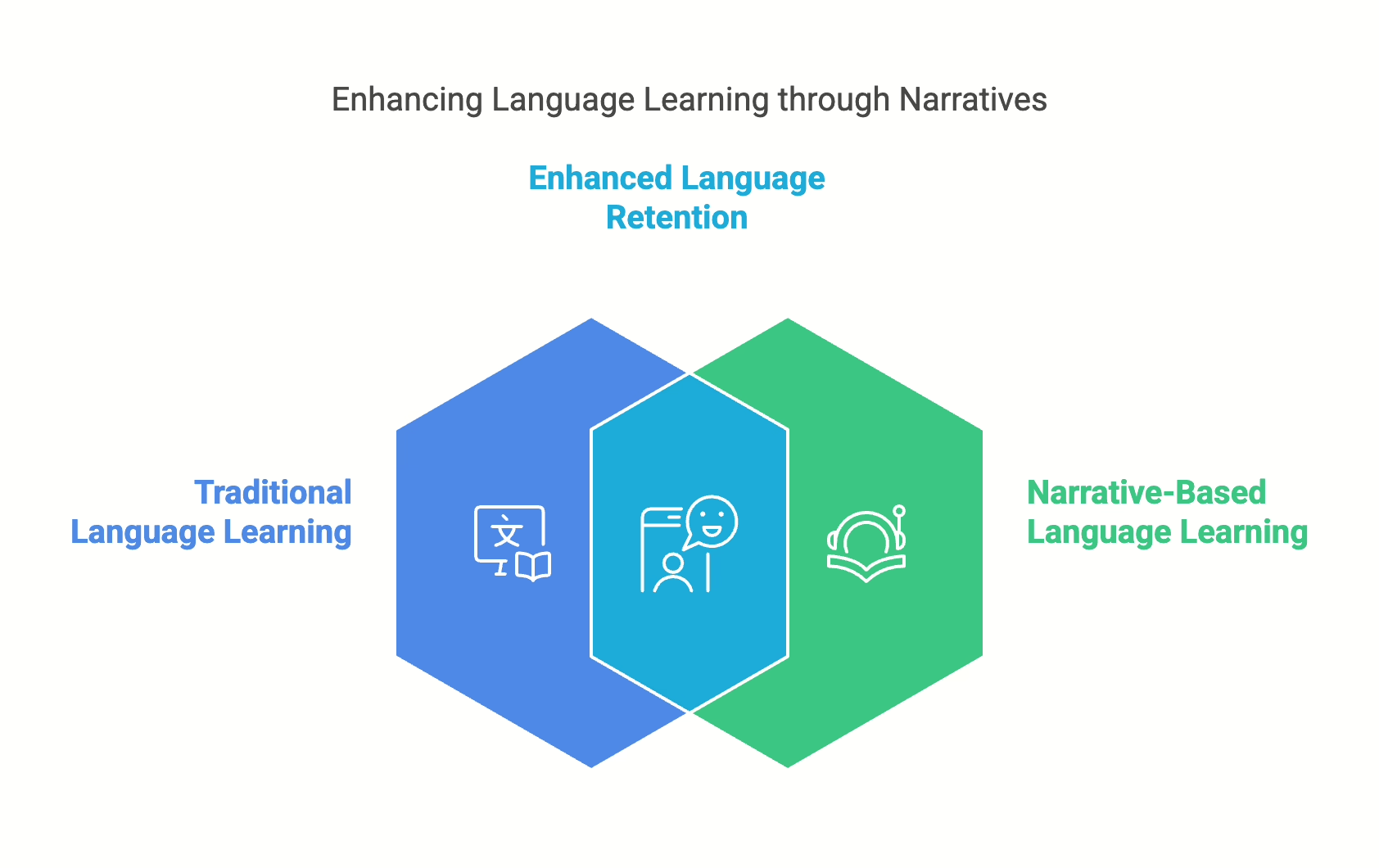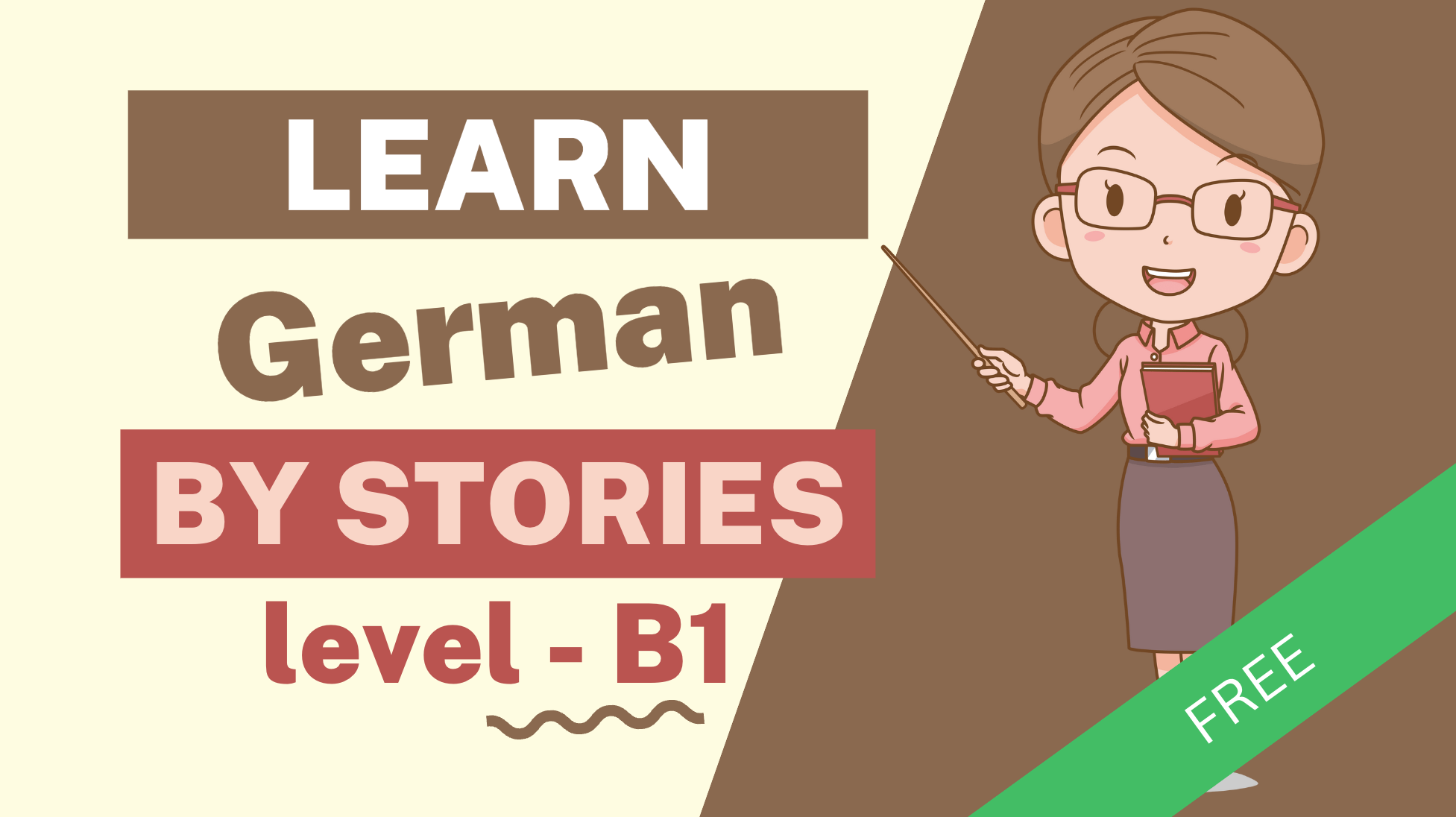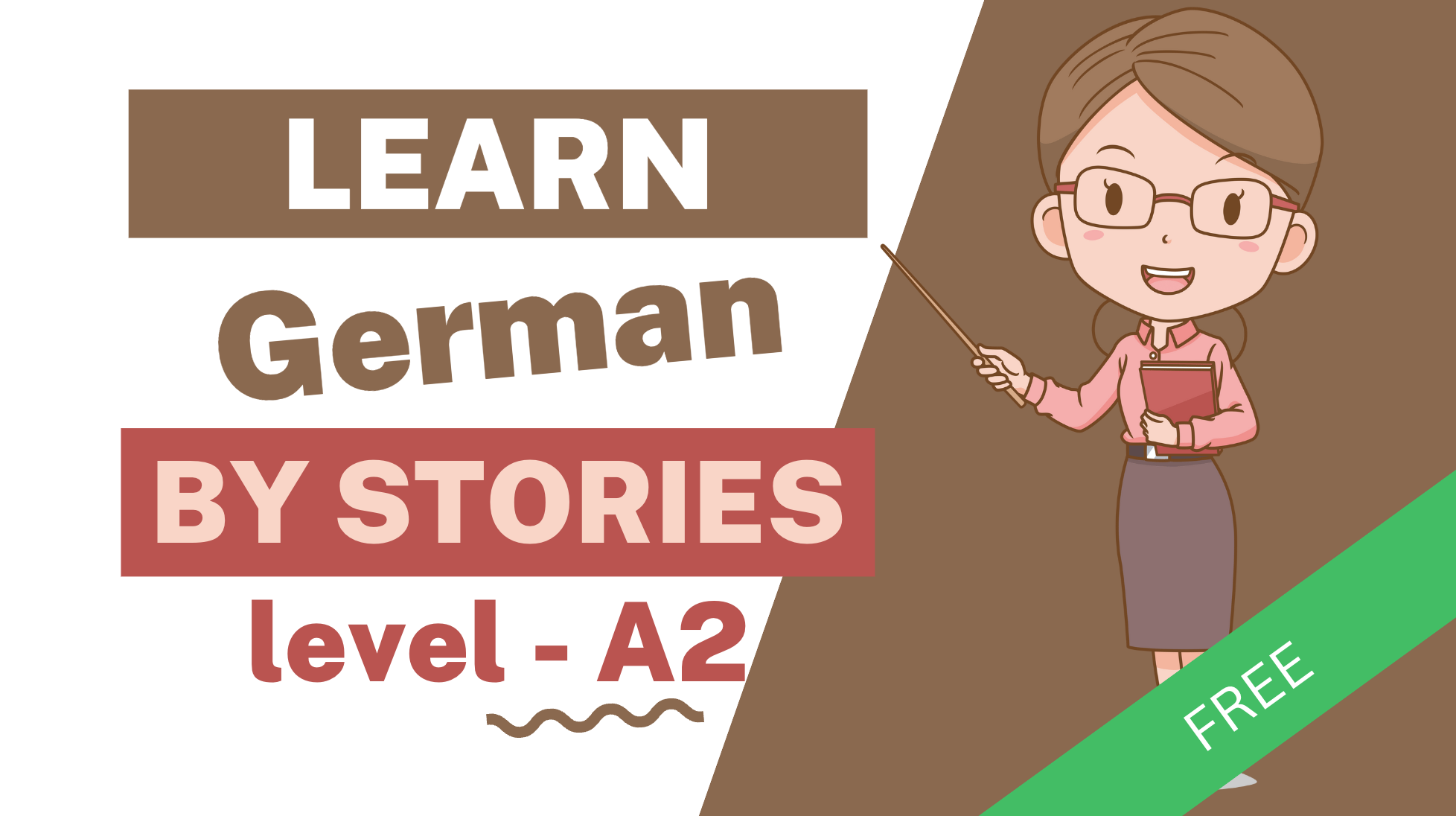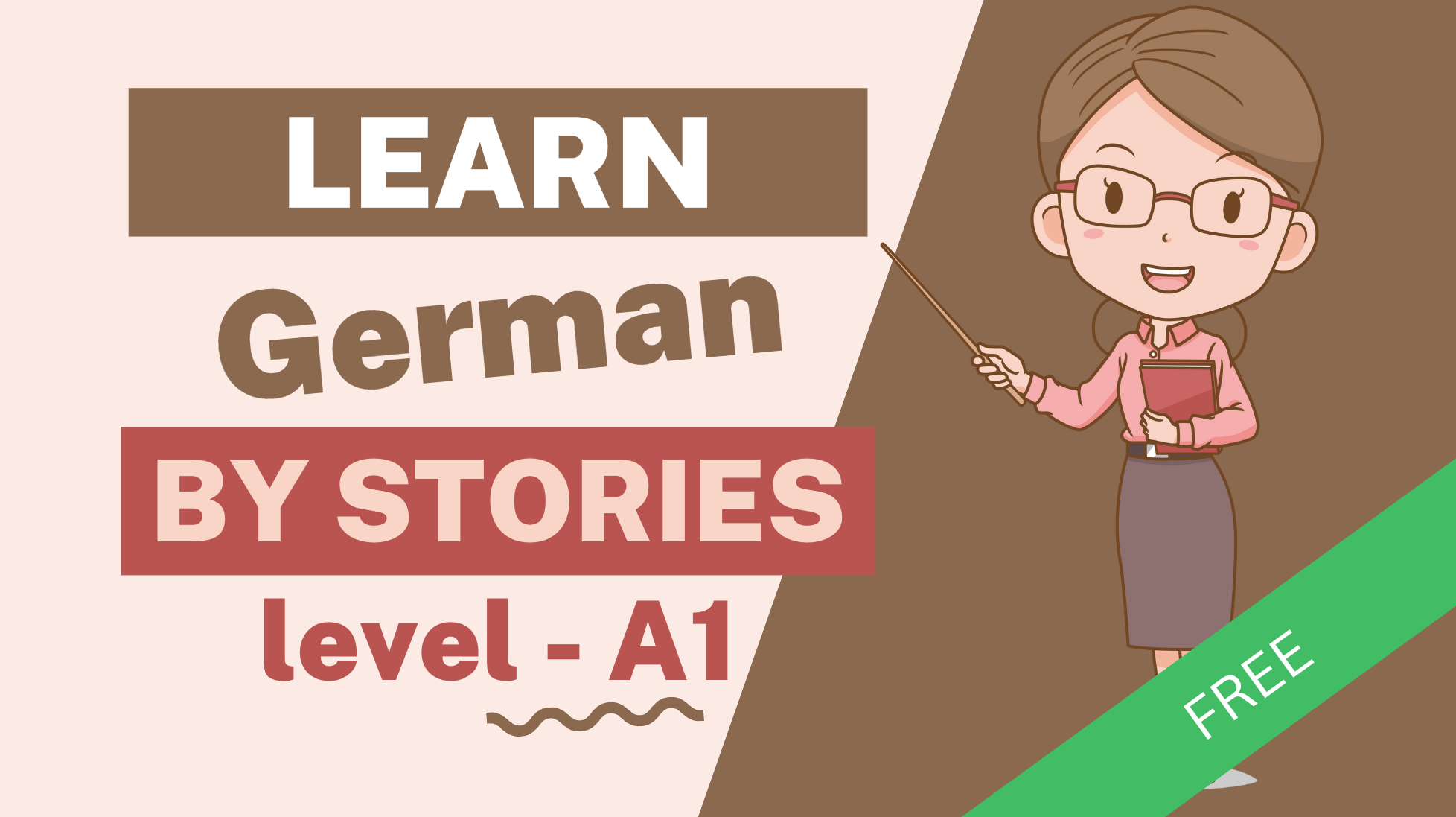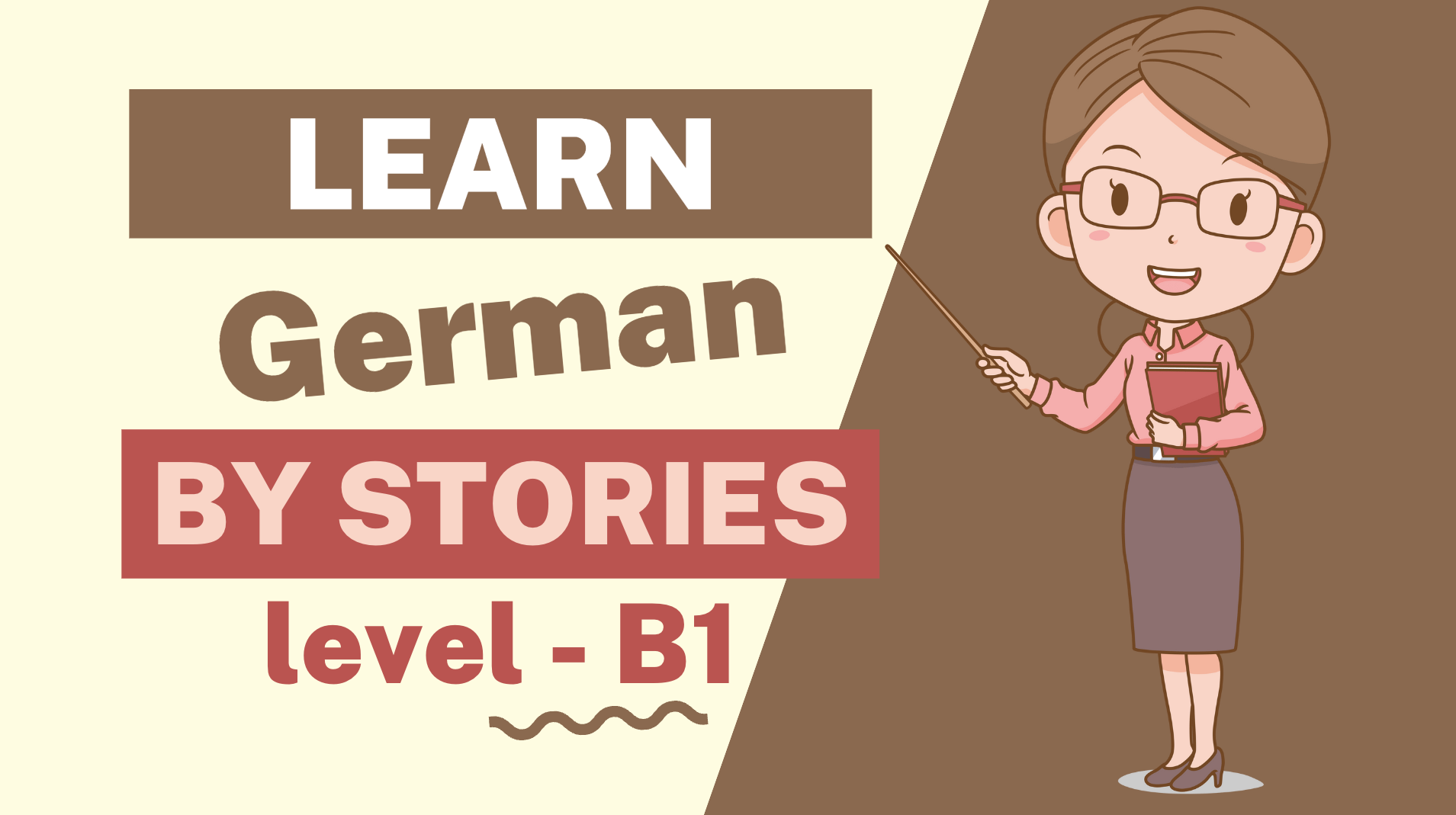Imagine sitting down to learn German. In one scenario, you’re memorizing a list of vocabulary words and grammar rules. In another, you’re following Maria as she navigates her first day at a new job in Berlin, feeling her nervousness as she introduces herself to colleagues and celebrates her small victories throughout the day. Which scenario do you think would help you learn more effectively?
The Brain’s Natural Affinity for Narratives
Our brains are wired for stories. When we encounter narrative content, our neural activity shows something remarkable: we don’t just process the information—we live it. Research using fMRI scans published in Psychological Science[^1] has shown that when people read about an action in a story, the same areas of their brain activate as if they were performing that action themselves. This phenomenon, known as neural coupling, explains why we feel so immersed in good stories.
Memory Formation Through Storytelling
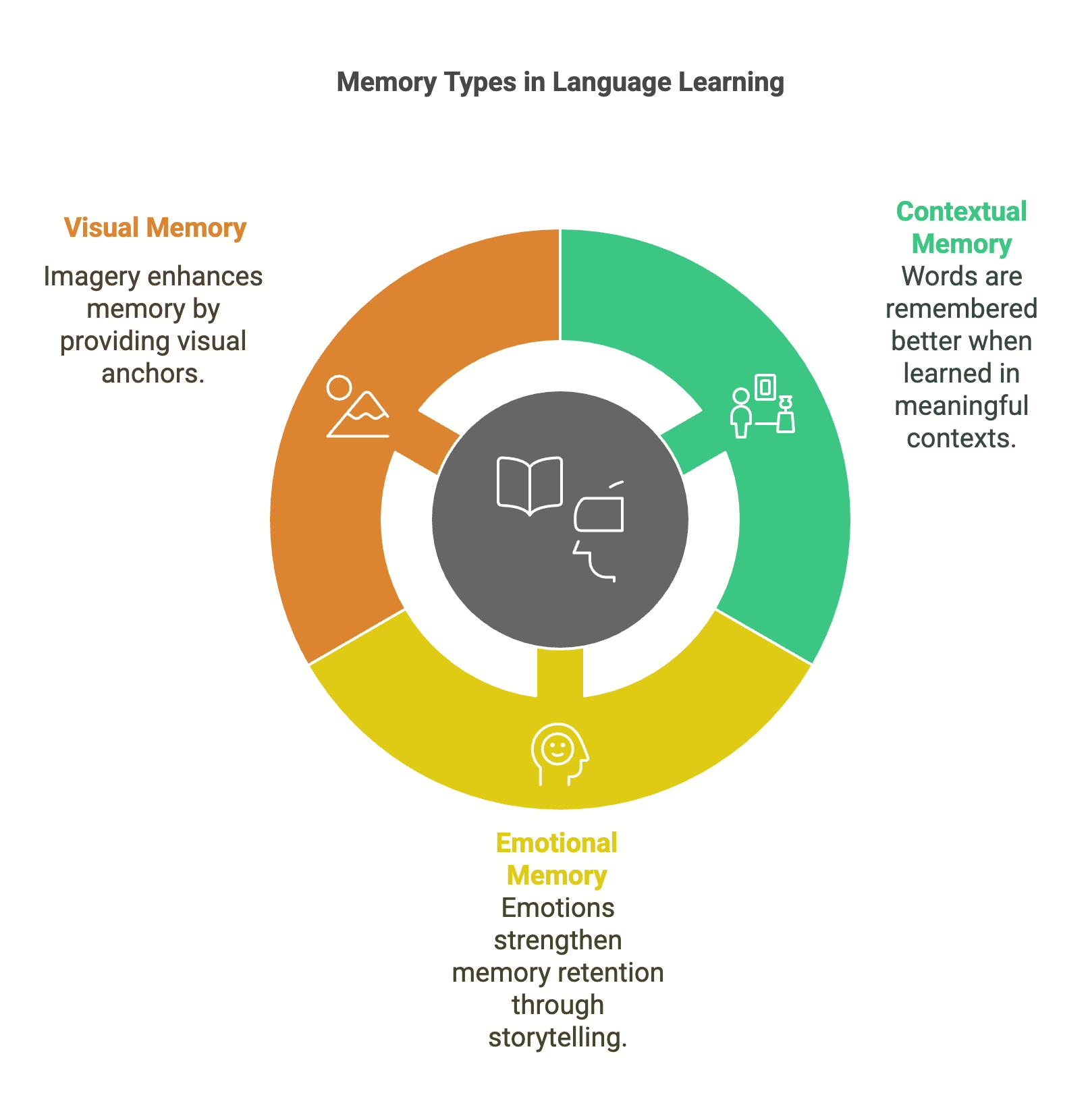
The power of storytelling in language learning lies in how our memories are formed. Traditional textbook learning often relies on rote memorization, which primarily engages the short-term memory. A study published in the Journal of Educational Psychology[^2] found that students learning through narrative-based approaches showed 27% better retention compared to traditional methods. Stories create multiple memory pathways:
Contextual Memory: Words and phrases are learned within meaningful situations, making them easier to recall later
Emotional Memory: The feelings evoked by stories create stronger neural connections
Visual Memory: The mental imagery we create while reading stories provides additional memory anchors
The Emotional Connection: Why It Matters
Research published in the Journal of Neuroscience[^3] has demonstrated that emotional arousal leads to enhanced memory consolidation. The study showed that emotional content was remembered 40% more accurately than neutral content after a one-week delay. When we learn language through stories, we’re not just memorizing words—we’re experiencing them through characters’ journeys, challenges, and triumphs.
In our German language courses, we’ve seen this principle in action. Students learning the word “Vorstellungsgespräch” (job interview) through our story about Lisa’s nerve-wracking first interview in Munich show significantly better retention than those who simply memorize it from a vocabulary list.
From Theory to Practice: How We Implement Story-Based Learning
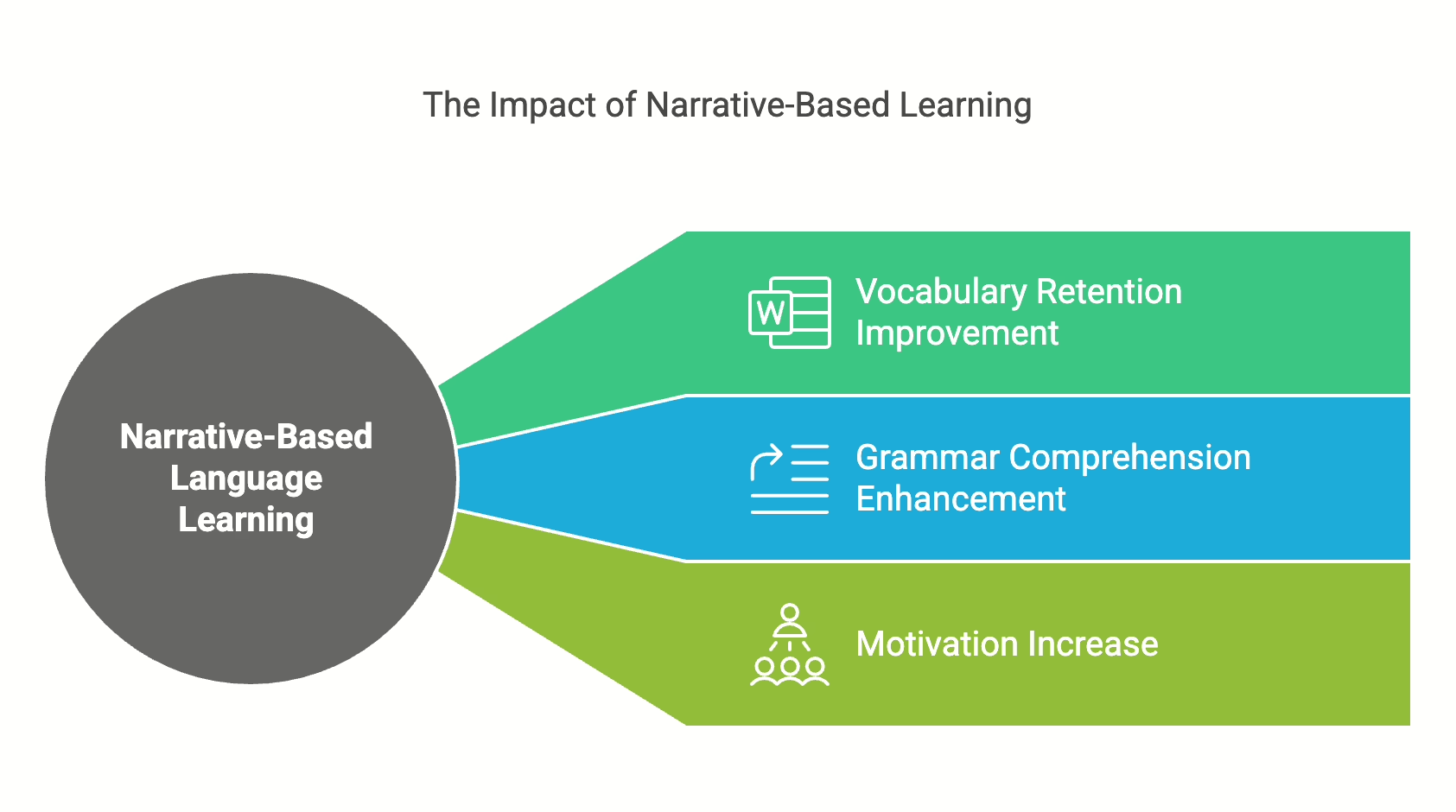
A comprehensive study in Language Learning & Technology[^4] found that narrative-based language learning led to:
42% improvement in vocabulary retention
37% better grammar comprehension
58% increased motivation to continue learning
At our platform, we’ve carefully crafted stories that align with different proficiency levels while maintaining emotional engagement:
A1 Level Example:
Our story “Kaffee mit Freunden” (Coffee with Friends) introduces basic social interaction vocabulary through a relatable situation of meeting friends at a café. Students naturally learn phrases like “Ich möchte…” (I would like…) and “Wie geht’s?” (How are you?) within a context they can easily imagine themselves in.
A2 Level Example:
As learners progress, stories become more complex. “Der neue Job” (The New Job) incorporates workplace vocabulary while following a character through their first week at work, dealing with common challenges that many students can relate to.
B1 Level Example:
At this level, our stories tackle more nuanced situations. “Die Wohnungssuche” (The Apartment Hunt) combines housing vocabulary with the emotional journey of finding a new home in a foreign city, incorporating cultural elements and common challenges faced by expatriates.
The Results Speak for Themselves
Our internal studies show that students using our story-based approach demonstrate:
40% better retention of new vocabulary after one month
60% higher engagement rates compared to traditional methods
Significantly improved ability to use learned phrases in real-world contexts
Making It Work for You
Research in Applied Psycholinguistics[^5] suggests that active engagement with narrative content increases learning outcomes by up to 50%. To maximize the benefits of story-based learning:
Read actively, trying to picture the scenes in your mind
Connect the story situations to your own experiences
Practice retelling the stories in your own words
Focus on understanding the overall context before drilling down to individual words
By learning through stories, you’re not just memorizing a language—you’re experiencing it. This natural, immersive approach mirrors how we acquired our first language and makes the learning process not just more effective, but also more enjoyable.
Remember, the next time you’re tempted to reach for that vocabulary list, consider instead diving into a story. Your brain—and your future German-speaking self—will thank you for it.
References
[^1]: Speer, N. K., Reynolds, J. R., Swallow, K. M., & Zacks, J. M. (2009). Reading Stories Activates Neural Representations of Visual and Motor Experiences. Psychological Science, 20(8), 989-999.
[^2]: Mar, R. A., & Oatley, K. (2008). The Function of Fiction is the Abstraction and Simulation of Social Experience. Perspectives on Psychological Science, 3(3), 173-192.
[^3]: McGaugh, J. L. (2004). The Amygdala Modulates the Consolidation of Memories of Emotionally Arousing Experiences. Annual Review of Neuroscience, 27, 1-28.
[^4]: Kramsch, C., & Kramsch, O. (2000). The Challenge of Globalization for the Teaching of Foreign Languages and Cultures. Language Learning & Technology, 4(2), 6-31.
[^5]: Pavlenko, A., & Lantolf, J. P. (2000). Second Language Learning as Participation and the (Re)construction of Selves. Sociocultural Theory and Second Language Learning, 155-177.

